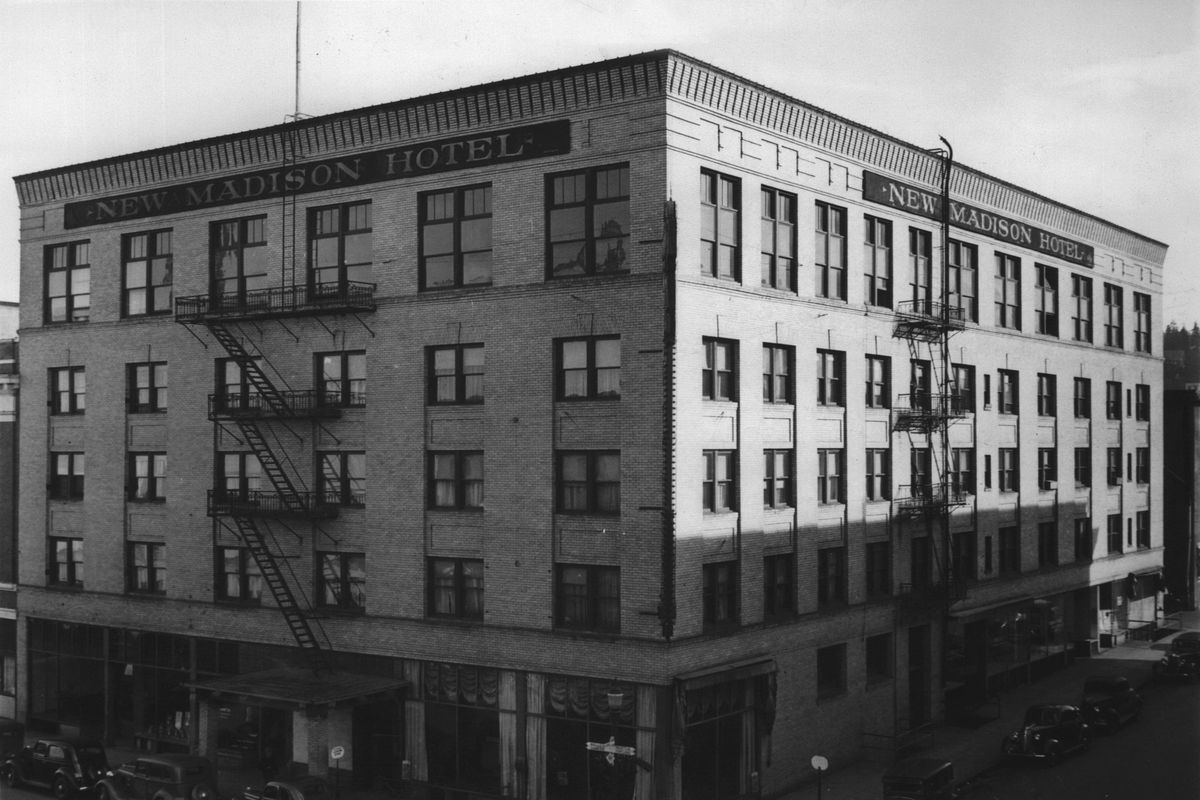Then and Now: Madison building

Frank P. Hogan, born in Ireland in 1848, didn’t leave his name on much in Spokane. But he was a pivotal figure in the city’s growth.
He had served in the Civil War, attended business college in Wisconsin, cut timber for the Northern Pacific Railroad, studied law and run a store in Roseburg, Oregon, before arriving in Spokane in 1886.
Once here, he focused on real estate.
He built many homes and buildings, including the Hogan block, a predecessor of the Peyton Annex at Sprague Avenue and Post Street, and the Madison Hotel at First Avenue and Madison Street. Hogan and partner John Finch donated the land for Audubon Park while they were developing the neighborhoods around it. He also opened a brickworks and a sash-and-door factory.
While busy in business, Hogan also used his legal training and reputation to quietly take care of problems that arose in the city. In the aftermath of the 1889 fire, donations, both cash and supplies, rolled in to town with little supervision to manage those donations. Following rumors of city council hands looting the fund, Hogan and 100 other citizens met secretly in a downtown barn. Hogan was appointed to stem the looting and prevent news of the thievery from tarnishing the town’s reputation, tasks which he accomplished discretely.
When bridges collapsed over the Spokane River and the city was facing huge damages, Hogan stepped in with a committee to investigate and settle the claims. In the wake of the deadly Iroquois Theatre fire that killed more than 600 in Chicago in 1903, Hogan was asked to head a committee to visit every Spokane building and mandate changes to avoid a similar tragedy here.
Hogan was a lifelong Democrat but never sought public office. Historian Nelson Durham wrote, “He has preferred that his public service be done as a private citizen and has wielded an influence which is perhaps all the more potent because it is moral rather than political and because it seeks the public weal rather than individual honors. When crises have occurred which have demanded the service of men of unquestioned integrity and public loyalty, Mr. Hogan has always been called to the front.”
Hogan spent the last 12 years of his life in San Gabriel, California, and died there in 1927.